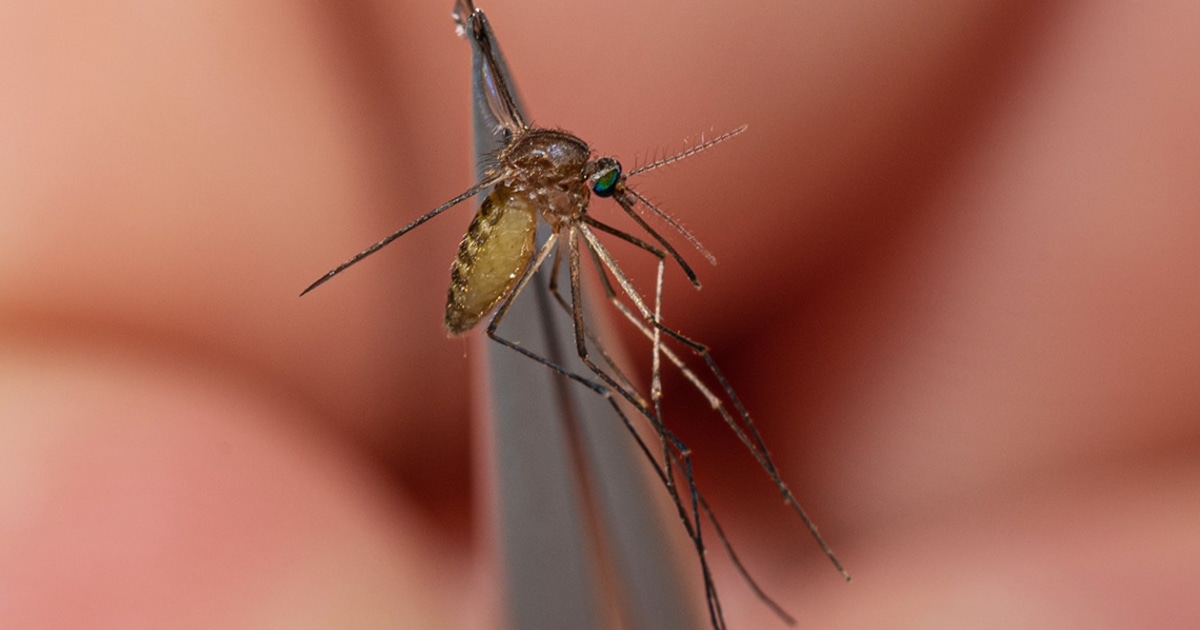Massachusetts is on high alert following an outbreak of Eastern Equine Encephalitis, a rare but deadly virus transmitted by mosquitoes. The outbreak has led several towns to implement strict measures to protect residents from this disease.

Also Read: Over 60% of Baby Foods Sold in US Fail to Meet Nutritional Standards, Study Finds
Eastern Equine Encephalitis (EEE) is a rare but illness caused by a virus transmitted through the bite of infected mosquitoes.
Although the disease is uncommon, it has a high fatality rate with about 30% of infected individuals succumbing to the illness.
The virus is found in eastern and Gulf Coast states and Massachusetts has been identified as one of the high-risk areas.
On August 26, 2024, the town of Plymouth implemented strict measures closing all parks from dusk to dawn to minimize the risk of EEE transmission.
This decision was by the detection of EEE in a horse within the town, which increased the risk to the human population.
Massachusetts reported its first human case of EEE since 2020. The infected individual, a man in his 80s from Worcester County remains hospitalized and is courageously battling the virus.
The man’s family through Oxford’s town manager Jennifer Callahan shared his story as a warning to others.
He was bitten shortly before showing symptoms. The family is urging the public to take the disease seriously and follow health guidelines to avoid infections.
Massachusetts has experienced EEE outbreaks in the past in 2019 when 12 confirmed cases resulted in six deaths. The following year the outbreak continued with five additional cases and another fatality.
These outbreaks typically occur every 10 to 20 years and last for two to three years. The current outbreak began with the detection of EEE in mosquito samples last month.
The virus has since been found in additional mosquito populations across the state.
The Centers for Disease Control and Prevention (CDC) reports that about 30% of people who contract EEE die and many survivors suffer permanent neurological damage.
Symptoms of EEE can range from mild to severe and include fever, headache, vomiting, diarrhea, seizures and behavioral changes. The virus can cause encephalitis, an inflammation of the brain which can be fatal.
Health officials across Massachusetts recommend using EPA-registered insect repellents containing DEET, picaridin or oil of lemon eucalyptus when outdoors during peak mosquito activity times from dusk to dawn.
To reduce the risk of mosquito bites, residents are advised to wear long sleeves, pants and socks when outside, especially during the evening and early morning hours.
Mosquitoes breed in standing water, so it is crucial to regularly empty containers, birdbaths, gutters and other areas where water can accumulate near homes.
Residents in high-risk areas are encouraged to avoid outdoor activities during peak mosquito activity times. In addition to the town-imposed curfews, individuals are advised to keep windows and doors closed or use screens to prevent mosquitoes from entering homes.
Massachusetts has initiated aerial and ground mosquito control measures. In Plymouth County, aerial spraying is being conducted, while Worcester County is utilizing truck-mounted spraying.
Also Read: Research Links Red Meat Consumption with Increased Risk of Type 2 Diabetes
The pesticide Anvil 10+10, registered with the Environmental Protection Agency (EPA) is being used for these efforts.
This pesticide has been tested and is widely used in the US for mosquito control. According to the Massachusetts DPH, Anvil 10+10 has been proven effective in killing mosquitoes over the past two decades.
EEE is transmitted to humans and animals through the bite of an infected mosquito. The virus typically circulates between mosquitoes and birds in freshwater hardwood swamps.
Mosquitoes that bite both birds and mammals is known as bridge vectors which can transmit the virus to humans and animals including horses and emus.
EEE can cause a range of symptoms from mild fever and headache to severe neurological conditions such as encephalitis, which involves inflammation and swelling of the brain.
Symptoms usually appear 3-10 days after being bitten by an infected mosquito. The disease progresses rapidly and in severe cases, patients may enter a coma within a week. Most deaths occur within 2 to 10 days after the onset of symptoms.
The Massachusetts Department of Public Health issued a statewide alert, warning residents about the increased risk of EEE.
Ten communities including several in Plymouth and Worcester counties have been classified as high or critical risk zones. This year’s outbreak is the first significant one in four years.
As a precautionary measure Plymouth has closed all public parks and fields from dusk until dawn. This period is when mosquitoes are most active and pose the greatest risk of transmitting the virus.
Wearing long-sleeved shirts and pants during peak mosquito activity times is recommended. Insect repellents containing DEET, permethrin, picaridin or lemon eucalyptus oil are effective in repelling mosquitoes and should be used when spending time outdoors.
Residents are encouraged to reschedule outdoor activities that would typically occur during dusk and dawn, when mosquitoes are most active.
Draining standing water around homes is crucial as mosquitoes lay their eggs in stagnant water. Ensuring that screens on windows and doors are in good repair can also prevent mosquitoes from entering homes.
Also Read: Tomiko Itooka: The World’s Oldest Person at 116 Age






















